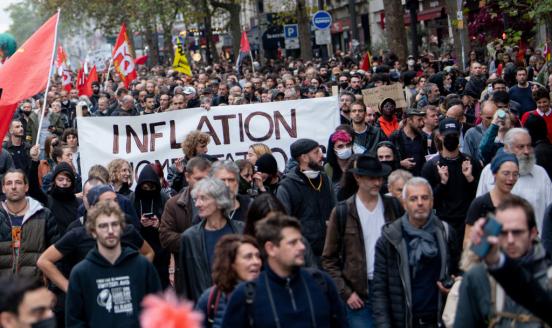Keep calm … and reach a deal ASAP
A clear majority of Greek citizens has decided to decline the creditors’ proposal that was on the table on June 25. This result should not be over-int
A clear majority of Greek citizens has decided to decline the creditors’ proposal that was on the table on June 25. This result should not be over-interpreted and should be simply taken as it is, a clear NO to the policies that have been implemented in Greece over the last 5 years and that have failed to avoid a free fall of GDP 25% and a dramatic increase of unemployment to 25%. It should absolutely not been seen as a NO to euro membership, as Greeks have reaffirmed without any doubt their willingness to stay in the Eurozone in all polls conducted over the last few weeks.
European policy makers will have some historical decisions to take this week. Even though some of them have tried to re-frame the referendum as an in-out vote last week to push Greek citizens into voting yes, this was never the question that was asked to the Greeks. The European partners of Greece should recognize this and be ready to negotiate a new ESM programme with Mr. Tsipras’ government, who has been given a clear mandate to continue negotiating for a better deal than the one that was on the table on June 25.
Signalling to the ECB that they are willing to reach a deal quickly will be extremely important. In a first phase, this will allow the ECB to at least maintain the Emergency Liquidity Assistance (ELA) to Greek banks at its current level. The ECB’s Governing Council will meet on Monday to decide what they want to do with the ELA. Withdrawing the money lent to Greek banks to replace the massive outflows of deposits that have been taking place over the last few months would result in the bankruptcy of the banking sector and would force the Greek authorities to issue a new currency to recapitalise their banking sector, resulting de facto in the exit of Greece from the monetary union. This would be a major political decision that should not be taken by unelected central bankers before Tuesday’s summit. It is therefore in the duty of the European governments to avoid that by signalling clearly to the ECB that they are ready to reach a deal. In a second phase, advancing quickly in the negotiations and signalling it to the ECB will allow the Governing Council to start raising the ELA ceiling again to play fully its role of Lender of Last Resort. Given the already limited buffer of cash of Greek banks when ELA was frozen, they could run out of cash quickly, even with the current cash withdrawal limits in place, so the increase of the ELA ceiling should take place as soon as possible.
Allowing or, even worse, forcing Greece to leave the Eurozone would be a terrible and irreversible decision. This would be dramatic for Greek citizens in the short-term as it would lead to more suffering resulting from a further collapse in GDP and increase in the unemployment rate. But this would also be dramatic for the rest of the Eurozone as this would definitely show that the euro is a reversible currency and that the promise of the ECB to “do whatever it takes” to preserve the integrity of the monetary union cannot be taken seriously.
It will be difficult, but there is no time to lose now. The creditors of Greece will have to show very quickly that they are ready to compromise, that they are able to be magnanimous and to forget the often divisive rhetoric that have been used by the Greek government on the campaign trail over the last week. By doing that, they will show that they take into account the result of a democratic vote, even if it comes from a small country at the edge of the Union. For their part, even if they have just obtained a big political victory, Mr. Tsipras and his government, will have to be humble and show that they can regain their partners’ trust by finally proposing serious reforms compatible with their platform (e.g. on the judicial system, on corruption, on tax evasion, and on the role of the oligarchy) and with the renewed mandate given to them by the Greek people on Sunday, in order to put the Greek economy and society back on track.



